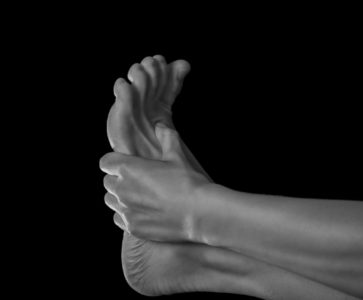 For a fair amount of people who suffer a minor or mild foot injury, pain and discomfort are at their most extreme shortly after the injury, and eventually pain levels decrease over the next few days. For others, or for those who have been dealing with a dull chronic condition, they may notice that their pain levels have actually been getting worse as time goes on. If your foot pain has been worsening, what should you do?
For a fair amount of people who suffer a minor or mild foot injury, pain and discomfort are at their most extreme shortly after the injury, and eventually pain levels decrease over the next few days. For others, or for those who have been dealing with a dull chronic condition, they may notice that their pain levels have actually been getting worse as time goes on. If your foot pain has been worsening, what should you do?
In today’s blog, we explain what you should do in the event that your foot or ankle pain is worsening.
When Foot Injuries Become More Painful
We can’t sit here and tell you exactly what’s going on with your foot without seeing it in person, but in general, the fact that pain and discomfort is getting worse tells us a few things and can provide some insight into what steps should be taken next. For example, pain that is getting worse typically means three things:
There’s More Going On That Meets The Eye – You may have assumed that you were just dealing with a bruise or a sprain after your injury, but if pain is getting worse, it could be because you’re actually dealing with more extreme tissue damage or even a fracture.
Current Treatments Aren’t Cutting It – If symptoms are getting worse, it’s clear that your current treatments aren’t doing the trick. Oftentimes people aren’t actively treating these perceived minor injuries, which means that ignoring the problem and trying to continue going about your day as normal is not working either. Take these worsening symptoms as a sign that you should consider switching up what you’re currently doing to help your foot heal.
You Should Have It Examined – It’s not normal for foot pain to get worse, so regardless of whether it’s an acute injury or a chronic pain, it’s likely time to have the injury assessed by a professional. This is helpful for two main reasons. First, this will give you an official diagnosis. You won’t have to try and guess what happened or base your treatment off of hopeful internet searches, because now you’ll know exactly what you’re dealing with. This leads us to the second helpful reason, which is that your doctor will provide you with a clear treatment plan based on your individual needs. Knowing what you’re dealing with and how to effectively treat it will be extremely helpful.
If you don’t change your habits, odds are pain is only going to get worse, and that may be the result of more damage to the area. When damage worsens or goes untreated for an extended period, oftentimes treatment success starts to become less likely. The earlier effective treatments are pursued, the higher the likelihood you’ll make a full recovery. Don’t keep putting off treatment, because by the time you get around to it, your foot may be less responsive to treatment.